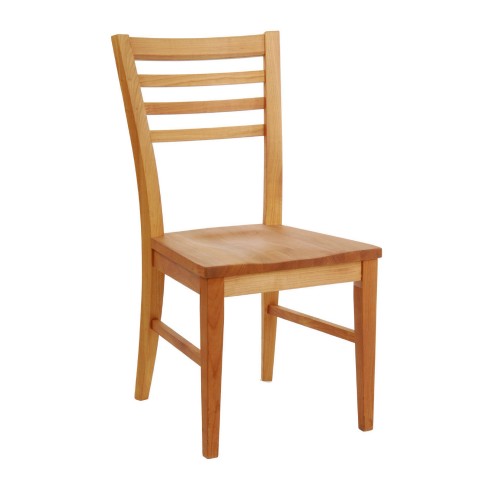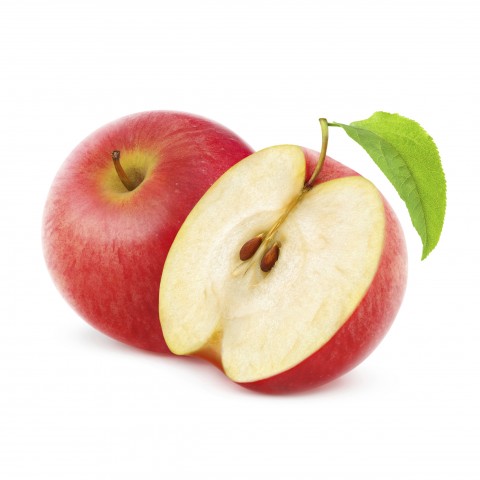
There’s certainly a need for sentences of positivity and affirmation in our everyday lives, but what about the negative ones?
Unsurprisingly, they’re actually an essential part of human expression in every language. Knowing how to form negative sentences and answers can improve the effectiveness of our communication with others and help us set healthy boundaries.
As a beginner, you should definitely start learning about negation in Chinese as early on as possible. I get that it can sometimes be tough to say no, but as long as you find the appropriate way to express your rejection, you have nothing to worry about! As a matter of fact, learning how to say no can actually save time for all parties involved.
Even for something as basic as negation, there’s a lot to map out. But don’t worry—you’ll find all the information and examples you need right here in this guide! We’ll cover not only the basic negative phrases and answers, but also some unique phrases for expressing negation in Chinese like a native.
Let’s get straight to it!

We have to learn to say NO to things we don’t want.
 Table of Contents
Table of Contents
- How to Negate a Statement
- Giving a Negative Response to a Question
- Ten Negative Words You Need to Know
- Special Ways to Say No
- Double Negatives
- Bonus: Polite Ways of Saying No in Chinese
- Conclusion
1. How to Negate a Statement
Chinese negation really just boils down to two basic words: 不 (bù) and 没 (méi). While 不 is often used to negate things in the present or future tense, 没 is used to negate things in the past tense.
Learning how to correctly use these two Chinese negation words is half the battle. Once you have this down, you’ll have little difficulty grasping variants based on them.
There are a few different patterns you can use to convey negation in Chinese:
1. 不 (bù) + Verb + Object
In Chinese: 我不喜欢吃香蕉。
Pinyin: Wǒ bù xǐ huān chī xiāng jiāo.
In English: “I don’t like eating bananas.”
2. 不 (bù) + Adjective
In Chinese: 我觉得这件衣服不好看。
Pinyin: Wǒ jué de zhè jiàn yī fú bù hǎo kàn.
In English: “I think this piece of clothing isn’t good.”
3. 不 (bù) + Proposition
In Chinese: 邻居不在家。
Pinyin: Lín jū bú zài jiā.
In English: “My neighbor is not at home.”
4. 没 / 没有 (méi / méi yǒu) + Verb
In Chinese: 我没有偷东西。
Pinyin: Wǒ méi yǒu tōu dōng xi.
In English: “I didn’t steal anything.”
2. Giving a Negative Response to a Question
Now that you’re familiar with the basics, let’s cover another topic of interest: How to reply to a question with a negative answer.
The following patterns and phrases are easy to learn, but you need to be mindful when using them. Depending on the context, they might sound a bit rough in Chinese. If you want to express negation in a more secure and polite way so as not to offend anyone, check out the bonus section at the end of this article for a little treat!
1. The Simplest Way to Deny Something

It’s not as hard as you think to deny something. Just say it!
Example
Question: 是你把我的芝士蛋糕吃了吗?
Pinyin: Shì nǐ bǎ wǒ de zhī shì dàn gāo chī le ma?
In English: “Did you eat my cheesecake?”
#1. To say that something did not happen the way it was described: 不是 (bú shì)
#2. To say that something didn’t happen at all: 没有 (méi yǒu)
2. Other Negative Responses
#1
In Chinese: 不是这样的。
Pinyin: Bú shì zhè yàng de.
In English: “It’s not like that.”
#2
In Chinese: 不行。
Pinyin: Bù xíng.
In English: “No way.”
#3
In Chinese: 不可以。
Pinyin: Bù kě yǐ.
In English: “That’s not allowed. ”
3. Ten Negative Words You Need to Know
Do you feel confident with the two basic words described earlier? Then you should go ahead and try to memorize the following words for negation in Mandarin Chinese!

Sometimes we just have to speak out loud what we truly think.
#1. 不能 / 不可以 (bù néng / bù kě yǐ) – “can’t”
In Chinese: 你不能/不可以 这么做。
Pinyin: Nǐ bù néng / bù kě yǐ zhè me zuò.
In English: “You can’t do it. ”
#2. 不会 (bú huì) – “won’t”
In Chinese: 我不会离开你的。
Pinyin: Wǒ bú huì lí kāi nǐ de.
In English: “I won’t leave you.”
#3. 从不 (cóng bù) – “never”
In Chinese: 我从不撒谎。
Pinyin: Wǒ cóng bú sā huǎng.
In English: “I never lie.”
#4. 很少 (hěn shǎo) – “hardly”
In Chinese: 她很少吃甜点。
Pinyin: Tā hěn shǎo chī tián diǎn.
In English: “She hardly eats dessert.”
#5. 没有人 (méi yǒu rén) – “nobody”
In Chinese: 这里没有人。
Pinyin: Zhè lǐ méi yǒu rén.
In English: “Nobody is here.”
#6. 别 / 不要 (bié / bú yào) – “don’t”
In Chinese: 不要这样做。
Pinyin: Bú yào zhè yàng zuò
In English: “Don’t do this.”
#7. 不再 (bú zài) – “no longer”
In Chinese: 我终于长大了,不再是那个年幼无知的小女孩了。
Pinyin: Wǒ zhōng yú zhǎng dà le, bú zài shì nà gè nián yòu wú zhī de xiǎo nǚ hái le.
In English: “I finally grew up and am no longer that naive little girl.”
#8. 无处 (wú chù) – “nowhere”
In Chinese: 从此这架飞机便无处可寻了,哪里都找不到。
Pinyin: Cóng cǐ zhè jià fēi jī biàn wú chù kě xún le, nǎ lǐ dōu zhǎo bú dào.
In English: “Ever since then, the airplane went nowhere and no one ever found it.”
#9. 否则 (fǒu zé) – “otherwise”
In Chinese: 你真该庆幸有我在,否则你就完蛋了。
Pinyin: Nǐ zhēn gāi qìng xìng yǒu wǒ zài, fǒu zé nǐ jiù wán dàn le.
In English: “You should be glad I’m here, otherwise you would be screwed.”
#10. 也不 (yě bù) – “either” / “neither”
In Chinese: 我也不想出去吃饭。
Pinyin: Wǒ yě bù xiǎng chū qù chī fàn.
In English: “I don’t want to dine out either.”
4. Special Ways to Say No

We have to stop ourselves from doing the wrong things when needed.
#1. 非 (fēi) – negation for illegal things
In Chinese: 你所做的属于非法行为。
Pinyin: Nǐ suǒ zuò de shǔ yú fēi fǎ xíng wéi.
In English: “What you did was illegal.”
#2. 无 (wú) – “none of…” [formal]
In Chinese: 我只想在一个无人打扰的地方度过余生。
Pinyin: Wǒ zhǐ xiǎng zài yī gè wú rén dǎ rǎo de dì fang dù guò yú shēng.
In English: “I just want to spend the rest of my life in a place where no one can disturb me.”
#3. 否 (fǒu) – “not” [formal]
In Chinese: 你是否愿意和我在一起?
Pinyin: Nǐ shì fǒu yuàn yì hé wǒ zài yī qǐ?
In English: “Do you or do you not want to be with me?”
#4. 勿 (wù) – “don’t” [formal]
In Chinese: 请勿践踏草坪。
Pinyin: Qǐng wù jiàn tà cǎo píng.
In English: “Please do not step on the grass.”
5. Double Negatives
Ready to move on to a more fun topic? Below are some examples of Chinese double negation, where two negators are used in the same sentence and cancel each other out.
1. Subject + 不是 (bú shì) + 不 (bù) / 没 (méi) + Predicate
#1.
In Chinese: 她不是不知道这件事的严重性。
Pinyin: Tā bú shì bù zhī dào zhè jiàn shì de yán zhòng xìng.
In English: “It’s not like she doesn’t know how serious this is.”
[She knows how serious this is.]
#2.
In Chinese: 我不是没提醒过他。
Pinyin: Wǒ bú shì méi tí xǐng guò tā.
In English: “It’s not like I didn’t remind him.”
[I reminded him.]
#3.
In Chinese: 你不是不知道他有多喜欢你。
Pinyin: Nǐ bú shì bù zhī dào tā yǒu duō xǐ huān nǐ.
In English: “It’s not like you don’t know how much he likes you.”
[You know how much he likes you.]
2. Subject + 不 (bú) + 会 (huì) / 能 (néng) / 可能 (kě néng) + 不 (bù) / 没 (méi) + Predicate
#1.
In Chinese: 父母是不会不疼爱孩子的,只是有时候方法不对。
Pinyin: Fù mǔ shì bú huì bù téng ài hái zi de, zhǐ shì yǒu shí hòu fāng fǎ bú duì.
In English: “It’s impossible that parents don’t love their children, it’s just that sometimes they are not doing it in the right way.”
3. (Subject) + 没有 (méi yǒu) + [Singular Noun] + 不 (bù) / 没 (méi) + Predicate + 的
#1
In Chinese: 这里面没有一个人不是单身。
Pinyin: Zhè lǐ miàn méi yǒu yī gè rén bú shì dān shēn.
In English: “There is no one that is not single.”
[Everyone is single.]
#2.
In Chinese: 这个超市里没有一个东西是不贵的。
Pinyin: Zhè gè chāo shì lǐ méi yǒu yī gè dōng xi shì bú guì de.
In English: “There is nothing in this supermarket that is not expensive.”
[Everything in this supermarket is expensive.]
6. Bonus: Polite Ways of Saying No in Chinese

Stay polite and reject offers in the proper way.
Unlike in some Western cultures where people are used to being straightforward, there are a lot of expressions in Chinese culture that show one’s opinion in a vague way in order to be polite. This also gives the other party 面子 (miàn zi), meaning “face,” which refers to the “dignity” you’re giving to the other person by not rejecting them outright.
There are certain words used this way that might not indicate a strong will, but you should still heed them. Instead of forcing the answer you want, realize that the other person has probably made up his or her mind despite giving a “soft” rejection.
#1
In Chinese: 要不算了吧。
Pinyin: Yào bu suàn le ba.
In English: “Just let it go.”
You can use this phrase if you feel that you can’t help something. For example, imagine your friends ask you to tell the girl you like about your feelings, but she’s just gotten a new boyfriend.
#2
In Chinese: 这个忙我可能帮不了。
Pinyin: Zhè gè máng wǒ kě néng bāng bu liǎo.
In English: “I probably won’t be able to help you with this.”
You could use this phrase after someone asks a favor of you, assuming you either can’t help them or don’t want to. For example, imagine a friend asks you to take care of his child when he’s gone, but you’re too busy to babysit.
#3
In Chinese: 还是别这样了。
Pinyin: Hái shì bié zhè yàng le.
In English: “Don’t be like this.”
This phrase is used to warn someone who has done something inappropriate. For example, you could say this if your friend wants to have a party at your house, but your parents need to work quietly at home and cannot be disturbed.
#4
In Chinese: 我不是很想去。
Pinyin: Wǒ bú shì hěn xiǎng qù.
In English: “I don’t really want to go.”
This is a polite way to reject an invitation. For example, you might use this phrase if your friend asks you to go for a drink at night, but you don’t like the taste of alcohol.
#5
In Chinese: 改天再说吧。
Pinyin: Gǎi tiān zài shuō ba.
In English: “Let’s talk about it another day.”
This phrase is often used to postpone rejecting an invitation (or to put off giving a specific reason for your rejection). You could say this, for example, if a friend asks you to dine out and you just don’t feel like it.
7. Conclusion
Chinese negation isn’t as difficult as you thought, right? Learning about negation in Chinese grammar early on can help increase your confidence as a beginner and make the rest of your studies much easier!
Always keep in mind that Chinese people are very polite in some ways, so you should be careful with your tone and the way you phrase your rejections.
If you still have any confusion about Chinese negation, don’t hesitate to let us know in the comments. Asking questions is the only way to really improve!
Whether you’re a beginner, intermediate, or advanced Chinese learner (or are anywhere in between), ChineseClass101 has customized content and convenient tools for efficient learning.
Can’t wait to see your growth in your Chinese-learning journey? Join ChineseClass101 today to boost your language skills like a pro.









































 Table of Contents
Table of Contents































